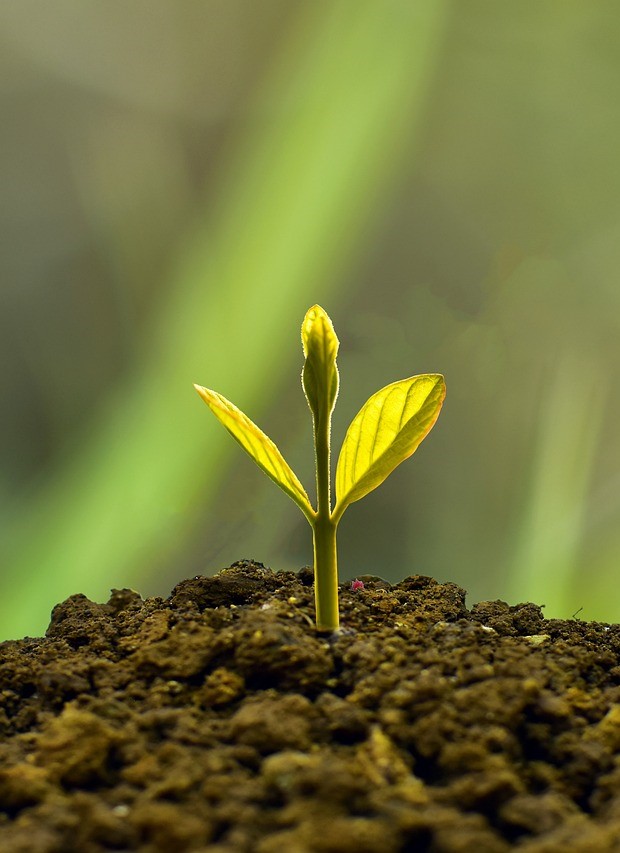In short, basic fertilizers are those that contain essential nutrients. In today's article, we will look at what is available and answer a common question: How to choose the right one from the countless bottles available?
What are essential nutrients?
Essential nutrients are those that plants need in large quantities. They are also known as macronutrients. These nutrients are absolutely necessary; without them, plants grow slowly or may die altogether.
Where do plants get essential nutrients?
The most basic nutrients that plants need, namely carbon (C), oxygen (O), and hydrogen (H), are obtained from the air and water. The rest are obtained by roots from the soil. To help plants grow better, we add fertilizers, mainly primary macronutrients known by the abbreviation NPK, which stands for nitrogen (N), phosphorus (P), and potassium (K).
Secondary macronutrients such as calcium (Ca), magnesium (Mg), and sulfur (S) are also included in basic nutrients. These are present in fertilizers in smaller quantities because they are usually available sufficiently from the substrate – of course, unless you are growing hydroponically.
How do basic fertilizers differ?
Fertilizer manufacturers plan nutrition to best meet plant needs. They take into account various stages of development, plant types, and their own experiences. Each manufacturer has its own approach to cultivation and experience from tests (sometimes even their own scientific laboratory!), which is why fertilizer brands differ from each other.
1. According to growth stage
Fertilizers are often tailored to the developmental stage. For beginners, the simplest are universal fertilizers for growth and flowering (using two or three components at once) or single-component ones for growth and flowering (using one component for growth first and then another for flowering). Multi-component fertilizers divide nutrition into four bottles (two for growth and two for flowering), so you can adjust it precisely according to the genetics and surrounding environment of the plants.
- Growth fertilizers
Growth fertilizers contain more nitrogen, which plants need in larger quantities during the vegetative phase. Such fertilizers are usually labeled as "Grow." Growth fertilizer is also available in two components, labeled as Grow A and Grow B, because some compounds in one bottle do not mix well - more in a separate article.
- Flowering fertilizers
Flowering fertilizers contain more potassium and phosphorus to support flowering and maturation. They are usually labeled as "Bloom." Like growth fertilizers, these can also be divided into components A and B.
- Universal fertilizers
They contain everything a plant needs during its growth cycle. The dosage varies according to the current phase of the crop. Such fertilizers are usually in two bottles A+B or even three, most commonly labeled as Grow, Bloom, and Micro.
- Fertilizers for cuttings and seedlings
Fertilizers for the youngest plants are less concentrated to avoid overfertilization.
2. According to cultivation method
The method of cultivation significantly influences the needs of plants, so there are fertilizers for soil substrates, coco, hydroponics, and aeroponics. For example, plants in coconut often lack calcium and magnesium, so fertilizers contain more of these elements. Hydroponic fertilizers are more concentrated because plants cannot take nutrients from the substrate.
Some fertilizers are universal or can be used in multiple methods. For instance, the world-renowned Dutch Formula from Advanced Hydroponics is mainly for hydroponics, but it works great in coconut or soil substrates when used at half doses.
3. According to composition
- Mineral fertilizers
These are the most commonly used fertilizers nowadays. They contain artificially created compounds optimized to best suit plants and be easily absorbed. Mineral fertilizer is efficient, concentrated, and usually, you know exactly what's in it. They don't spoil in the nutrient solution tank.
- Organic fertilizers
Organic fertilizers contain extracts from natural substances. They are closer to what plants would naturally encounter. They are recommended especially for beginners because it's hard to overfertilize with organics. They are often suitable for ecological or at least more ecological cultivation, but they cannot be used in hydroponics.
- Bio-mineral fertilizers
They combine the best of organic and mineral fertilizers. The components must be carefully selected, as some mineral substances may harm organic ones.
4. According to state
- Liquid fertilizers
A classic of home gardening. The fertilizer is in a bottle and is diluted with water, which is then used to water the plants. Such fertilizers work immediately, and higher doses lead to overfertilization, so it is necessary to dose carefully and regularly.
- Solid fertilizers
Solid fertilizers are usually granular or in tablet form. They are either mixed in water or added directly to the substrate. They release nutrients gradually; one tablet can last for several months.
So, what fertilizer is best?
The exhaustive description above is intended to help you pose and answer four questions to choose the right fertilizer.
- Do you prefer more or fewer components? In which vegetative phase is the plant?
- What and how are you growing the plant?
- Do you prefer organic or mineral fertilizer?
- Do you want to fertilize regularly or just once or twice?
The choice of a specific brand then depends on your personal experience or preferences. At Higarden, we recommend single-component nutrition from BioNova, which is available in variants for soil, hydroponics , and aeroponics. In their range, you will also find special fertilizer for auto-flowering plants. If you are interested in the simplicity of solid fertilizers, you can't go wrong with BioTabs. For coconut substrates, we recommend excellent nutrition from Shogun and concerning hydroponics, Advanced Nutrients or Terra Aquatica stand out.
The range of fertilizers is truly wide. We are happy to help you navigate it and find the fertilizer that suits you perfectly. Just contact us at info@higarden.cz.
Recommended:
More articles:


